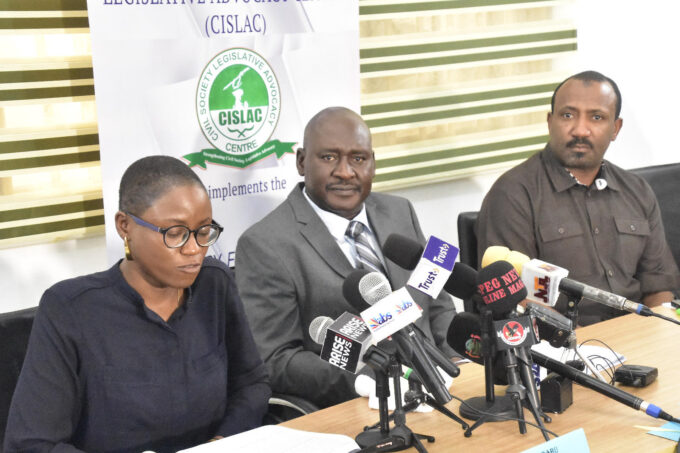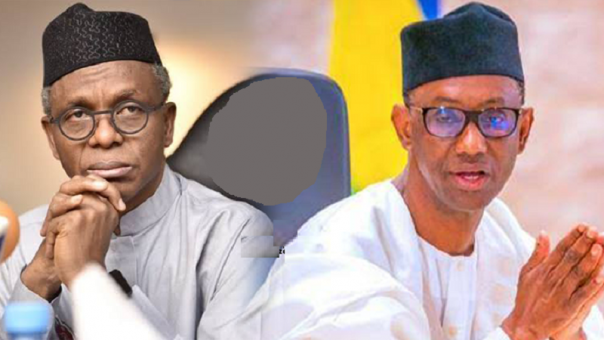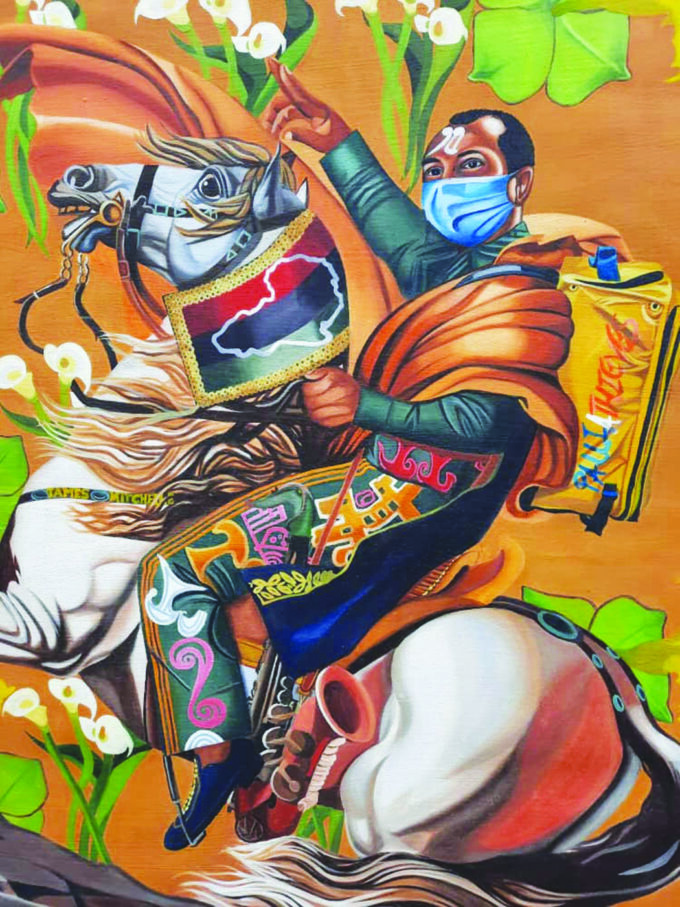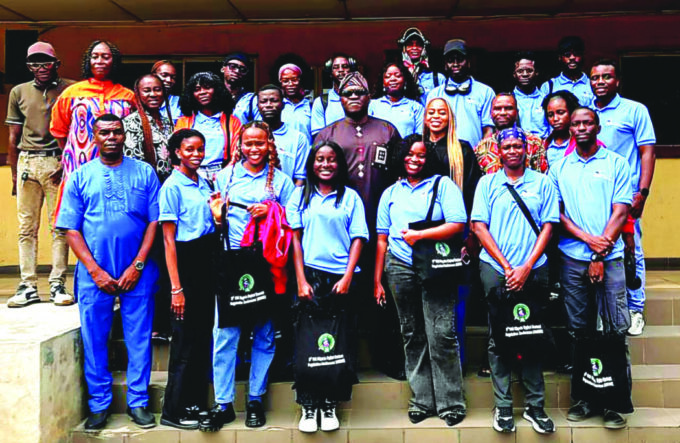Sunday Ehigiator
In an age where cultural identities risk being diluted by globalisation, initiatives like AfroFlavour are a necessary breath of fresh air.
Much more than a culinary showcase, AfroFlavour is fast emerging as a vibrant cultural platform, one that celebrates African heritage, reconnects the diaspora, and brings the rich flavors, sounds, and stories of the continent to global audiences.
From the sizzle of suya to the soulful beats of Afrobeat, AfroFlavour embodies a full sensory experience. It is not just about the food, although the cuisine is a major draw. It’s about storytelling through spices, history served in stews, and pride baked into every bite. Each dish served at an AfroFlavour event is a cultural ambassador, introducing attendees to the depth and diversity of African culinary traditions—from jollof rice wars to the lesser-known but equally rich dishes from East, Central, and Southern Africa.
AfroFlavour’s recent success in Washington, D.C., was proof that the appetite for authentic African culture is not only growing—it is thriving. The event attracted not only Africans in the diaspora but also a multicultural audience eager to explore Africa beyond the headlines. With music performances, fashion exhibitions, art displays, and traditional dance, it became a melting pot of identities and cultures anchored by African excellence.
Importantly, AfroFlavour is helping to reframe the African narrative. For too long, global perceptions of Africa have been shaped by conflict, poverty, and corruption. AfroFlavour offers a counter-narrative—one that is flavorful, rhythmic, joyful, and proud. It positions African culture not as something to be rescued, but as something to be celebrated, preserved, and exported.
Commenting on the outcome of the Washington DC event, the Chief Executive Officer and Founder AfroFlavour, Lucky Idike, explained that the intention of the “A Taste of Africa DC” event was to put a celebration of African cuisine on the sidelines of the recently held World Bank/IMF Spring meetings.
“And it was an amazing event. The biggest contributor to its success was our Afrolovers community. All the AfroLovers who attended the event and brought their energy to the food, networking and discussions were indispensable to the success.
“Many thanks to our DC partners, Ike Nwaneri of Zend Capital, Swahilli Village DC, the Afroflavour US team Dr Osa and Toks Omoruyi, Dr Lillian Agbeyegbe, and Bayo Oyewole. The authenticity of the experience was also key.
“We showcased authentic African cuisine: bold, layered, and deeply soulful. Many thanks to the South African, Mauritanian and Nigerian Embassies for their support. The turnout, the energy, the feedback, all of it affirmed that there’s a hunger for Africa that’s more than just aesthetics. People want to taste, feel, and understand Africa,” he added.
Now, as the next edition of AfroFlavour is set to hold in Nigeria on May 31, expectations are high. And rightfully so. This is more than a festival—it is a homecoming. Hosting the event on African soil adds an extra layer of authenticity and pride. It’s an opportunity to showcase African culture to Africans themselves, many of whom have become disconnected from their roots due to urbanisation, westernisation, or sheer economic hardship.
Already, the South African Consulate General in Nigeria, Prof. Bobby J. Moroe, has officially endorsed the event.
In a letter addressed to Idike, the Consul General expressed enthusiasm about the initiative, stating that it aligns with the consulate’s mission to foster cultural exchange and promote mutual understanding between South Africa and Nigeria.
The letter read partly: “I am writing to express the enthusiastic endorsement by the South African Consulate General in Lagos for your upcoming cultural event and food festival, which aims to promote South African cuisines in Nigeria. This event aligns perfectly with our diplomatic mission to foster cultural exchange and promote mutual understanding between South Africa and Nigeria.
For his part, Idike, in an interview with THISDAY, noted that, “For Flavours of Africa: The South African Edition in Lekki, we’re taking that momentum and refining the curation while dialing up the storytelling. This isn’t just another food festival. It’s an immersive heritage experience that stays with you. One critical output of this event will be a 6-part television series, titled “Flavours of Africa: The South Africa Edition.”
According to Idike, his organisation chose the month of May because it’s Africa’s Month.
“In Lagos we will celebrate the continent by spotlighting one of its most dynamic cultures. South Africa has a rich culinary heritage, a vibrant music scene, and a powerful artistic voice. This edition gives us a chance to highlight the culinary diversity within Africa. It’s not just about biltong, samp and amapiano. It’s about promoting unity between two of Africa’s largest economies by exploring the full texture of South African identity and how it connects with the broader African story.
“We are incredibly grateful to the Consulate General of the Republic of South Africa for their partnership on this journey. We salute Professor Bobby Moroe, the Consul General for his commitment to building bridges between South Africa and Nigeria. He will be speaking on “Food and Friendship” at the event. We are also grateful to our culinary partners Chef Atara Imbizo of Imbizo Cuisine and Chefdee, Nigeria’s Food General,” Idike added.
Speaking further on the forthcoming event, he pointed out that, “For the South Africa edition, we’re moving from a showcase to a full-on sensation. We’re designing the event to activate all the senses. Guests can expect a culinary journey to South Africa and authentic South African cooking, immersive soundscapes, and interactive spaces where they can connect. We’re also showcasing a collaboration between Chef Atara and Chefdee to demonstrate the power of cross-cultural storytelling and trade.”
For him, his organisation is focused on reshaping global perceptions about the continent, saying: “We’re flipping the script. Africa has always been more than wars, struggle, or survival. It is innovation, joy, resilience, and a wellspring of cultural wealth. Flavours of Africa is about reclaiming the narrative. We’re not waiting for external validation. Each event becomes a vehicle to introduce people to African excellence and shift how they see and engage with the continent.”
However, putting together such events on the global stage comes with its own challenges. He identied funding as a major challenge, saying, “funding, logistics across countries, coordinating vendors, unpredictable weather, and occasionally skeptical partners.
“All of it has tested us. But it’s made us sharper. This year, we’ve streamlined roles, improved communication, and focused on building relationships that go beyond surface level. The challenges forced us to become more intentional in every aspect of planning.”
Idike, nevertheless, noted that responses to his events have been incredible and very telling.
“Diasporans are craving connection. Locals want to feel seen and celebrated. That insight has shaped our programming, marketing, and even our location choices. We’re not just showcasing culture. We’re building a bridge across borders and creating a space where people feel proud of where they come from.”
On expectation for the May 31st event, he said: “We have a South African chef joining us for this edition. Her name is Chef Atara Imbizo. We look for creatives who understand that this is more than just a gig. It’s a cultural exchange and an opportunity to tell a deeper story alongside their Nigerian counterparts.
We’re introducing a Culture Meets Business corner where entrepreneurs, creatives, and professionals can network and explore collaboration. There will also be storytelling sessions on food origins, cultural symbolism, similarities between different national cuisines and how traditional practices influence modern creativity. It’s still fun and engaging, but it’s also rooted in learning and shared knowledge.
“AfroFlavour is building a cultural passport for the continent. In five years, I see us hosting festivals, pop-ups, and creative residencies in major cities like Toronto, Tokyo, and Berlin. I also see AfroFlavour mobilizing investment in AfroFood entrepreneurs across the entire value chain, in a bid to power the African cuisine explosion that’s coming. We’re building platforms that spotlight African cuisine, African chefs and promote African cuisine trade while championing African gastrodiplomacy. Our goal is simple: to make African cuisine a major player on the world stage, and growing trade between Africa and the world,” he added.
Clearly, the role of platforms like AfroFlavour in cultural diplomacy should not be underestimated. In a world where soft power increasingly defines influence, events like this contribute to Nigeria’s and Africa’s cultural capital. Governments and private stakeholders should see this as an opportunity to invest in creative and cultural industries that build identity, stimulate tourism, and foster international goodwill.
AfroFlavour should be supported so that it can grow into a sustainable movement by building a network of chefs, artisans, performers, and entrepreneurs whose work can continue to tell the African story long after the stages are taken down.
In the end, AfroFlavour reminds us that culture is not static, and neither is our pride. Through the rhythm of drums, the aroma of spices, and the elegance of Ankara fabric, it tells the world: this is Africa—and this is our flavour.


















Leave a comment